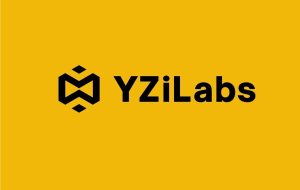There are always projects in the cryptocurrency space to keep a close eye on. Innovation is always around the corner in one way or another. Making this industry more appealing and accessible remains a significant hurdle to overcome, but the Hard Marketplace is trying to do its part in the NFT segment.
Non-Fungible Tokens Gain Momentum
The past few months have proven rather interesting in the NFT segment. More and more people show an interest in Non-Fungible Tokens, either for theoretical value, as collectibles, or otherwise. However, the industry primarily caters to existing cryptocurrency enthusiasts in its current form, which isn’t necessarily ideal. Expanding the appeal and applicability of this technology will create a more competitive landscape that will benefit users globally.
Hoard Marketplace is expanding its presence in the industry. Users can already trade, buy, sell, loan, or rent Non-Fungible Tokens through this service. Renting and lending NFTs may seem like a strange ordeal, but the approach makes a lot of sense when it comes to in-game items or domain names. Bringing game items to the Ethereum blockchain is one of the main priorities for the team today to enhance the developer-player interaction.
Hoard Marketplace will let the users govern the platform through a Decentralized Autonomous Organization (DAO) model in future iterations of the platform. Empowering the users to explore NFTs and decide how the platform will evolve is a primary benefit of blockchain technology. To participate in the governance aspect, users will need the HRD token. That token has a supply of 1 billion, with 48% being distributed to community members.
Additional benefits of holding the HRD token include using it for transactions, staking it for extra compensation, and voting rights. There is also an opportunity for HRD holders to become liquidity providers across decentralized exchanges supporting this token. Initial sources of income revolve around the tokens ale and staking, although the community can vote on changing that narrative.
A Different Spin On DeFi Liquidity
What makes Hoard so intriguing is how the team aims to tackle multiple aspects and concepts under one banner. It is not just about the traditional buying and selling of NFTs, but the team also adds additional use cases. Introducing a DeFi-oriented angle to the platform through liquidity provision is an unprecedented decision, although it can help the team expand its presence among DeFi users.
The liquidity provision aspect will also help bring more attention and value to the HRD token. As this token will grant stakers an opportunity to earn extra rewards and provides access to voting, it can note a substantial increase in value over time. On the staking front, users will earn staking fees on tokens with plenty of liquidity, including HRD and stablecoins. Giving users multiple options to earn passive revenue is crucial in this competitive industry.
Another aspect of liquidity provision comes through Hoard’s lending feature. Users who hold stablecoin can become a lender and acquire opportunities to obtain NFTs they like when there is a foreclosure. Borrowers can put up NFTs as collateral, which will be sent to the lender if they don’t receive their money back. However, if a borrower repays the loan ahead of schedule, funds increased by interest go to the lender’s account, and the NFT returns to the borrower.
Closing Thoughts
The broader approach by Hoard is very interesting and puts a different spin on the NFT industry. Promoting true ownership and NFT utility through services beyond buying and selling helps empower all users equally. Using Non-Fungible Tokens to acquire loans is an enhancement of the DeFi space as well. Combining the best of different industries can eventually lead to broader mass adoption of these technologies and the products they offer.
Der Beitrag All About Hoard’s New Liquidity Provider Program erschien zuerst auf Crypto News Flash.




















